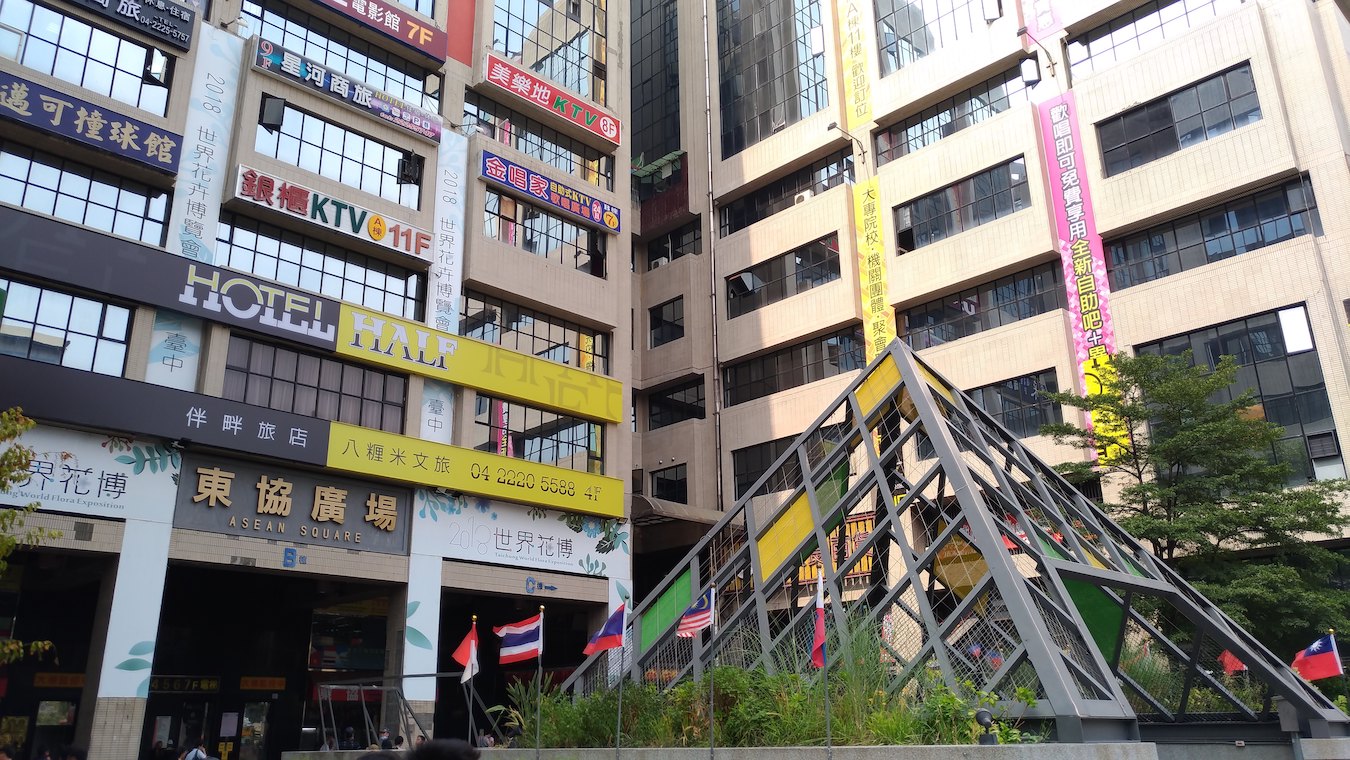by Brian Hioe
語言:
English
Photo Credit: Lord Koxinga/WikiCommons/CC BY-SA 3.0
THE INDONESIAN ECONOMIC and Trade Office (IETO) declared late last month that non-religious activities were banned for Indonesian migrant workers until December 12th.
This was in reaction to a series of events that led to a large public clash between Indonesian migrant workers on September 2nd outside of the Changhua railway station. A 32-year-old Indonesian man was fatally stabbed, while a 21-year-old man was stabbed four times and hospitalized. Afterward, the Changhua police arrested 29, while investigating another 15.
It is thought that the fight was the result of tensions between rival martial arts groups. The fight involved weapons such as swords, nunchucks, knives, tools, and brass knuckles. It is not impossible that martial arts groups can involve gang activity, however, as is sometimes the case with martial arts in Taiwan.
Since the deadly fight, restrictions have been announced by the IETO on the activities of the four involved groups. The main subject in the stabbing, a 24-year-old man, was arrested a day later on September 3rd.
Quite self-apparently, it raises questions about restrictions on fundamental freedoms of movement for migrant workers that the IETO views itself as having the authority to restrict all non-religious activities for Indonesian migrant workers. After all, the fight only involved several dozen individuals, while there are over 236,000 Indonesian migrant workers in Taiwan.
The IETO has justified its actions with the claim that this conforms with the Assembly and Parade Act. The Assembly and Parade Act has itself historically been criticized over restrictions on gatherings, particularly political assembly and protest, in past years.
Nevertheless, the Taichung police later stated that the ban had been unilaterally declared by the IETO and the Changhua police stated that it would not be enforcing any ban on Indonesian migrant worker activities. The Ministry of Foreign Affairs, too, stated that this went against Taiwan’s laws. Taiwan’s government-run Central News Agency stated that the IETO did not respond to requests for comment on the ban, as to what consequences would be faced by migrant worker groups that ignored the ban, or how it intended to carry this out.
 The ASEAN Square in Taichung. Photo credit: Fcuk1203/WikiCommons/CC BY-SA 4.0
The ASEAN Square in Taichung. Photo credit: Fcuk1203/WikiCommons/CC BY-SA 4.0
The actions of Taiwanese law enforcement in this case are better than on past occasions. After the outbreak of clusters among migrant workers in factories in Miaoli during the COVID-19 pandemic, migrant workers were confined to their dormitories except when working. Although progressive politicians such as independent Tseng Wen-hsueh called attention to that migrant workers were in dirty, crowded conditions in which COVID-19 was more likely to spread, Miaoli county magistrate Hsu Yao-chang defended this as necessary, and migrant workers continued to be confined to their dorms.
Likewise, on other occasions, Taiwanese law enforcement has sometimes sought to drive migrant workers out of places that they frequently congregate. This includes the plaza of Taipei Main Station, as well as the ASEAN Square in Taichung.
But to this extent, the actions of the IETO show how the Indonesian government can itself restrict the rights of migrant workers. The IETO likely fears that the brawl would hurt the image of Indonesian workers in Taiwan, thereby making Taiwanese employers less willing to hire them, more than protecting the rights of Indonesians in Taiwan. This occurs though the Indonesian government has taken a stance against the broker system currently used to arrange for the employment of migrant workers in Taiwan, as well as their transportation to and from their home countries.
Although it is a positive development that Taiwanese law enforcement has stated that it will not carry out a ban on Indonesian migrant worker activities, again, it is concerning that the Indonesian government apparently feels that it is within its rights to do so. Perhaps this reflects a worldview that migrant workers from Indonesia are simply sources of funds for the Indonesian government, as a labor-exporting country, never mind their basic human rights.
It proves important, then, to keep an eye on whether the Indonesian government takes any retaliatory measures against migrant workers who do not comply with its directives. After all, there have been cases of representative offices in Taiwan surveilling diaspora groups in Taiwan, particularly if they are engaged in political protest. In this sense, there may be a need for oversight over the actions of the IETO going forward, though it is unlikely that the representative office has enough resources to surveil the hundreds of thousands of Indonesians living in Taiwan.

